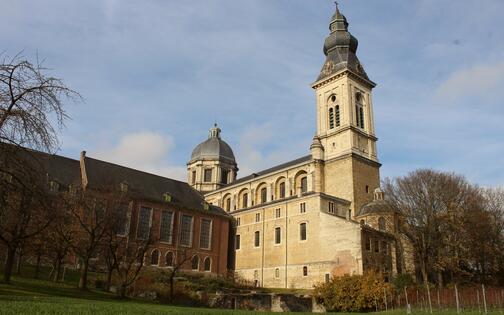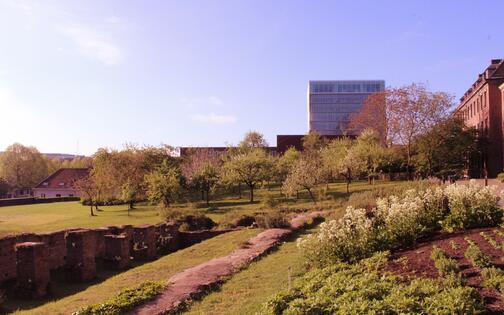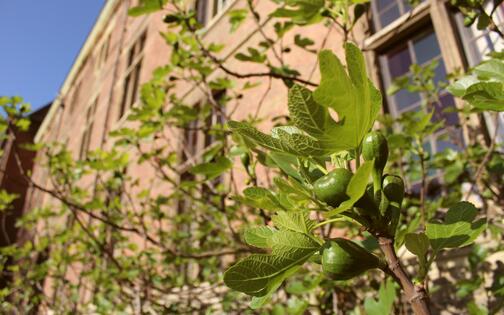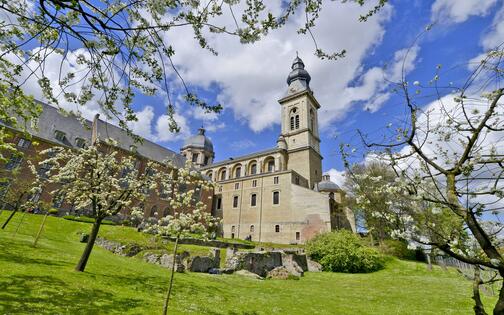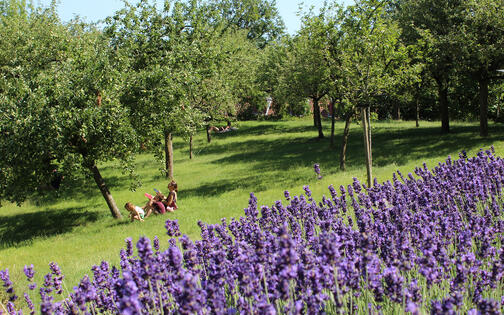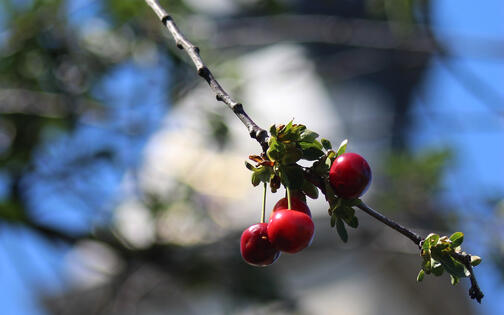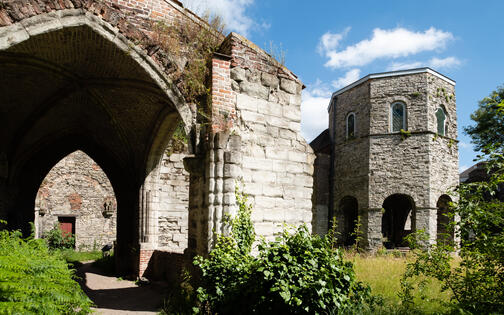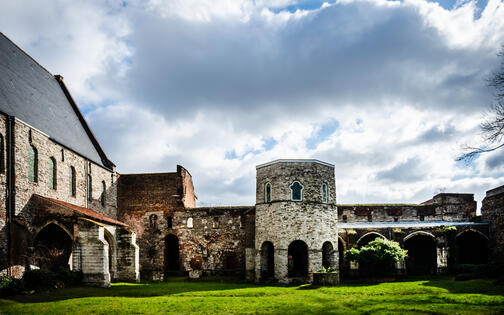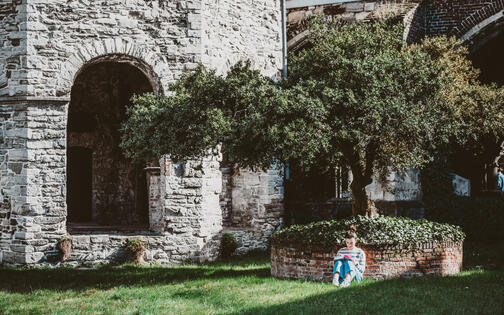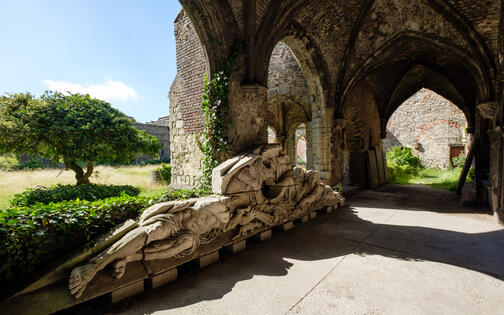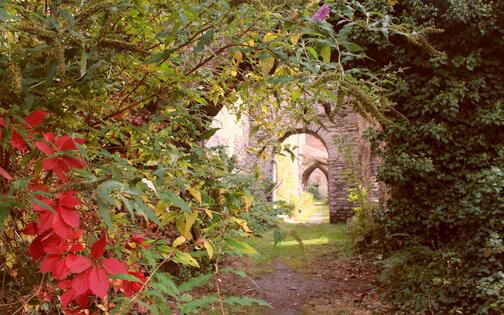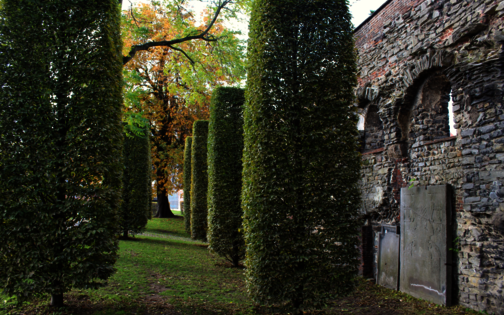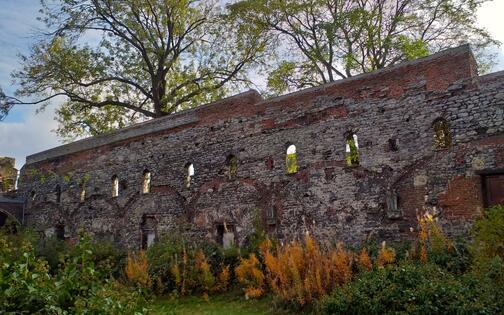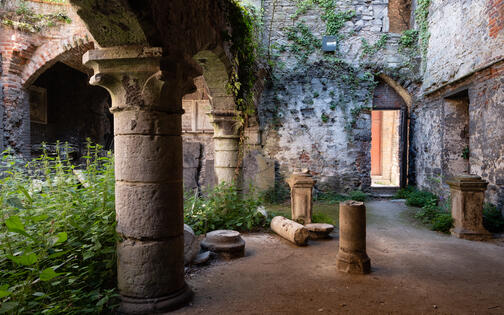
Concealed gardens
Ghent is the main city of Flanders and is enveloped by vineyards, orchards, and rich fields.
St Peter’s Abbey
A southern hot spot in Ghent
Did you know that a lush abbey garden lurks behind the majestic facades of St Peter’s Abbey? You abide there between the lavender, fruit trees, and grapevines. Time was when the monks wandered around in this green oasis of peace and quiet. Today, it is an open garden where you can relax, enjoy a picnic, study, or lie in the sun. Imagine that you are in the South of France and enjoy this green urban hot spot!
A historic garden
The abbey garden with herb garden, vineyard, and orchard was there in the Middle Ages. It’s a reconstruction based on historical models, built on the terraced gardens which a pretentious abbot created in the eighteenth century. The ruins in the garden are remnants of the old fifteenth-century infirmary or sickbay. Archaeologists found those remnants in the 1970s.
Between the vineyards or living a carefree and idle life
The monks had grown vines on the hillside to the River Scheldt since the ninth century. The wealthy St Peter’s Abbey even had its own brewery. It’s no wonder that the St Peter’s Abbey monks all drank some two litres of wine. They didn’t have pure drink water, so, apart from beer, wine was the main drink in the Middle Ages. The abbey has had vineyards again since 1983. Each year, four grape varieties provide a changing number of bottles of ‘abbey wine’.
Magic herbs and sweet fruit
The herb garden is located near the church and the ruins of a fifteenth-century sickbay or infirmary. You encounter the aroma of lavender, rosemary, thyme, sage, and other classic herbs. The infirmarer had grown medicinal plants in the herb garden since the ninth century, dried them, and made potions and ointments from them. If you look closely, you can still see the silhouette of the infirmary on the southern church wall.
And for lovers of sweet fruit, the orchard and fruit trees yield apples, pears, cherries, plums, nuts, and, yes, even figs each year! Take your pick and have a savour!
When you have a garden and a library, you have all you need.
St Bavo’s Abbey
Green splendour on the edge of the city
On the site where St Bavo’s Abbey once impressed the surrounds lies one of Ghent’s best-kept secrets. A medieval courtyard amid overgrown ruins and a green church. Five-metre-high hornbeam pillars evoke the lost church, once the biggest Romanesque church in the Low Countries. Do you like mystique, romance, and rare plants? If so, be sure to take a stroll inside the best-kept secret in the city!
A medieaval courtyard
Amid the overgrown ruins lies a medieval courtyard with a vast array of flora. Today, on the site where monks once strolled and mumbled, there are over 210 different plants growing between the age-old stones, including some very rare ones. Yellow corydalis, milk thistle, narrow-leaved ragwort, erigeron, and birthwort; all tasteful names of plants, each with their own colours. A unique sample of biodiversity in the city!
Violet and grey, the stones can crumble away peacefully, while ferns grow on the walls in emerald and green which may perish in future ages when we’re no longer here.
City Palace d'Hane Steenhuyse
An oasis of peace and quiet in Veldstraat
Take a break from the hustle and bustle of Veldstraat and relax in the magnificent walled city gardens of this eighteenth-century city palace. Enjoy a summer aperitif concert and imagine that you are a guest of the noble d’Hane de Steenhuyse family.
Soon you’ll be mixing with nobles and enjoying a delightful cup of coffee!
A city hotel full of natural beauty
The d’Hane Steenhuyse hotel is a manor house full of natural beauty. Natural beauty is in abundance, from the street wall to the back door, although you might not think so at first sight. The families who resided there enjoyed not only the garden, but also the natural beauty which literally came indoors, but as an ornament to make urban life more pleasant. The garden was a vital element in urban life for the nobility.
An ornamental garden with an orangery, a greenhouse, and an orchard
Valérie van Pottelsberghe de la Potterie (1839-1902), widow of Count Borluut, was not only a lover of art, but she also had a passion for gardens. She converted her somewhat dull eighteenth-century lawn into a delightful ornamental garden with an orangery, a greenhouse, grapevines, rose gardens, and lofty fruit trees. Close your eyes and imagine you are a guest in the Lady de la Potterie’s urban paradise between the blossoming fruit trees and aromatic flowers! Since the final old pear tree disappeared, the current lawn has been awaiting further development.
-
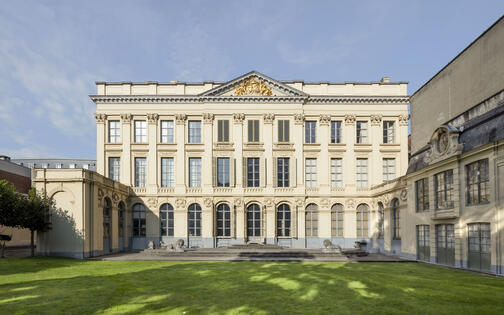
© Karen Borghouts -
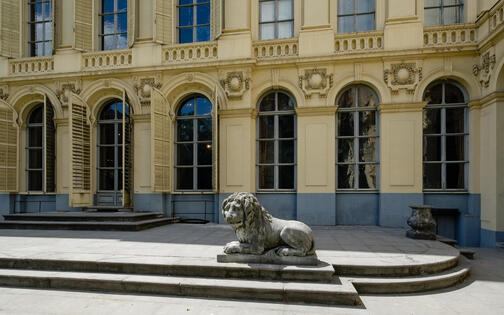
© Thomas Uyttendaele -
© HHG -
3 Show all photos
Castle of the Counts
Have a picnic in medieval spheres.
Behind the high ramparts and the gateway of the Castle of the Counts lies the upper bailey, the inner courtyard of the castle. As a knight, you looked for cover there in the heat of battle in the Middle Ages. As a heretic or witch, this was where you spent your last hours.
Today is the start of a unique experience trail through the fortress. Moreover, classes or groups can also enjoy a picnic in medieval spheres!
And those who look carefully will find some unusual mosses and plants between the age-old walls and stones!
The soul cannot prosper without a garden. If you don’t want paradise, you’re not human; and if you’re not human, you don’t have a soul.
-
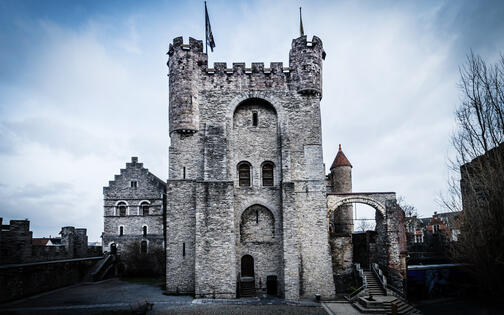
© Marthe Hoet -
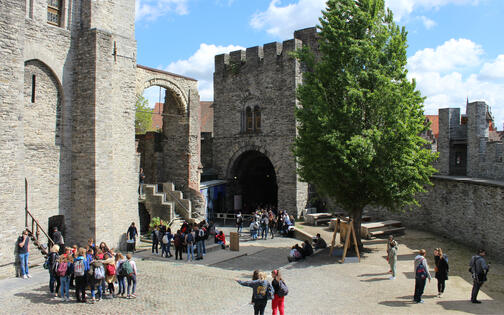
© HHG -
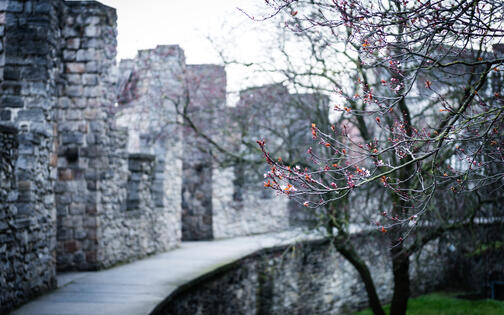
© Marthe Hoet -
3 Show all photos
City Palace Arnold Vander Haeghen
A picking garden for green fingers
After your visit to Vander Haeghen House, take a quick look in the little picking garden. Indulge yourself and pick some splendid fresh vegetables, fruit, and herbs.
And this in the busiest shopping street in Ghent!
-
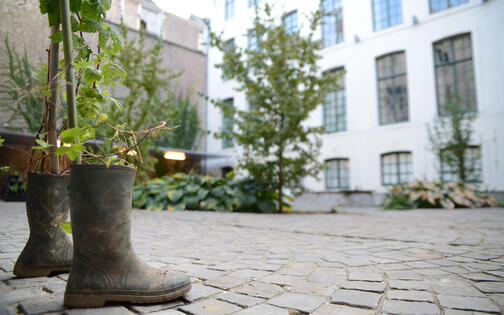
© Patrick Henry -
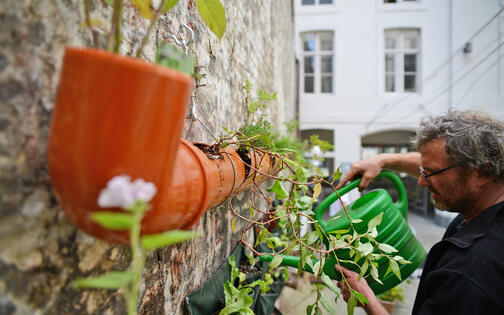
© Patrick Henry -
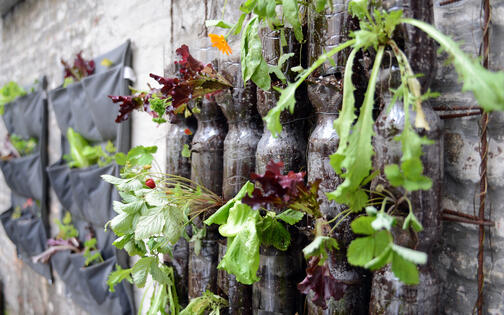
© Patrick Henry -
3 Show all photos
